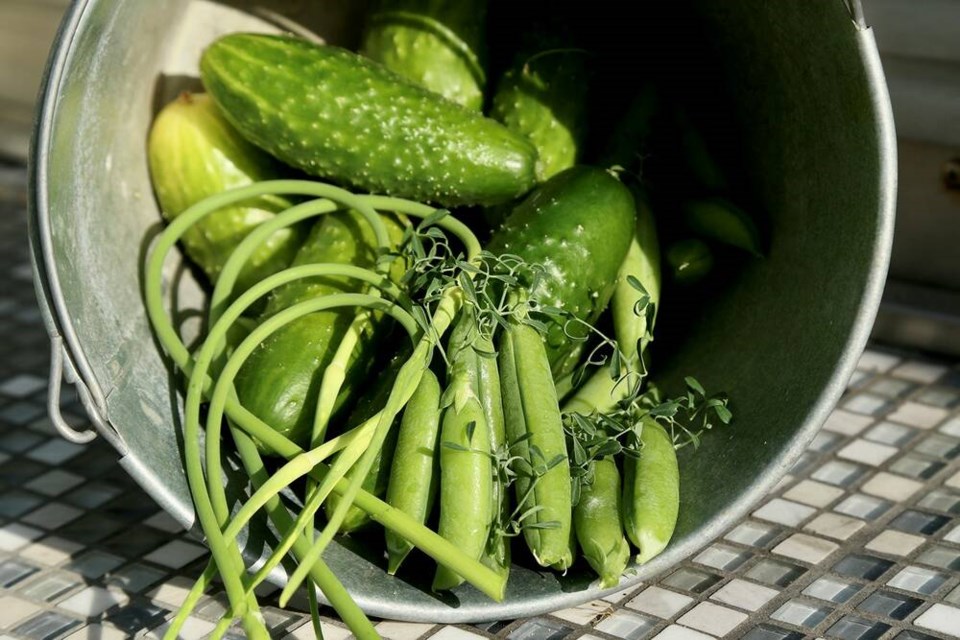Eating whole food in season has become an on-trend topic of much conversation, most particularly as it relates to preventing or treating chronic illness, and climate change. In reality, it is difficult for urbanites to eat in season. Even for people who have some level of knowledge, time, ability and access, it takes top-of-mind commitment to actually walk the talk.
For most of us, eating in season requires a value system reset that disrupts our convenience-driven way of life. For me, it takes mindful and deliberate effort to place more value on the time I spend growing, sourcing, preserving and cooking organic food, than the time I spend building economic or social capital. Certainly, there is a certain virtue and conviction in it, but for sure it is hard, and for the masses – myself included – it doesn’t come naturally. Schools don’t teach it, and if we are honest, contemporary society doesn’t really value it.
To understand “in season,” the very meaning of which can range from the most orthodox view of eating “only wild food in-season” to the all-encompassing and unrestrictive “whatever is available currently in the grocery store,” it is helpful to consider nature’s logic.
Seasonality then, for me, would consider only those foods that will grow outdoors in my native climate without the use of additional inorganic energy or inorganic fertilizers.
For the exercise to be reasonable and plausible, I include both native and non-native, non-GMO fruits and vegetable varieties. Because access to seed is limited by geography and economics, I aim high, but do not restrict myself to heritage varieties.
Aided by science-based insight into soil and human biology, permaculture and regenerative agriculture, my family grows food year-round in our raised beds and container gardens. We sow from seed indoors or in our old and unheated greenhouse. We use cold frames and hooped fleece during the winter to protect crops from snow and frost, and we preserve overstock produce by freezing, canning, pickling, fermenting and dehydrating.
We buy bulk canning tomatoes, eggs and seafood from local organic farmers, farmers markets, and green grocers. And we buy bulk grass-fed and finished beef, pasture-raised pork and poultry from regenerative B.C. farmers. Our diet is 75-per-cent plant based, primarily local.
This sounds romantic, but believe me it takes work. It takes work to plan and execute tasty, family-friendly meals on-the-fly, using primarily what needs harvesting at the moment or arrives in the weekly community-supported-agriculture box. It takes work to pick berries and fruit just before they ripen, to prevent bears from stopping by. It takes work to remember to defrost what we have rather than zip out for a quick and convenient bite.
It takes work to stay up late bulk canning tomatoes and pickling cucumbers. It takes work to prepare fresh food for packed lunches and road trips. It takes work to batch cut and blanch vegetables for freezing. It all takes work – for the most part underappreciated, unpaid, unglamorous, unrecognized work.
So let’s change that. Let’s consider eating in season a joy, privilege and vocation of the highest calling, and let’s assign it the value it deserves when considered in relation to human, community, societal and planetary health.
In my opinion, there is no greater work to be done, and every last one of you who grows or eats in season, in any measure, in whatever time and space you have, is a hero in my books. As I head home to harvest, blanch and freeze native field garlic scapes on the cusp of woodiness, I salute you!
Laura Marie Neubert is a West Vancouver-based urban permaculture designer. Follow her on Instagram , learn more about permaculture by visiting her website or email your questions to her here.
For a taste of permaculture, watch the video below:





